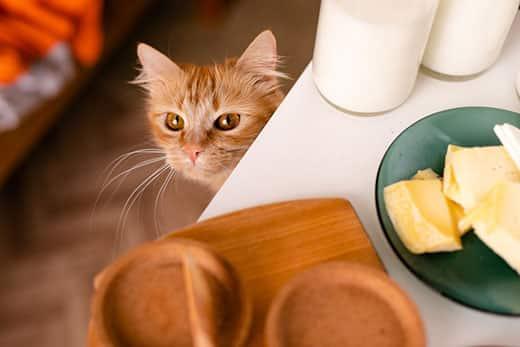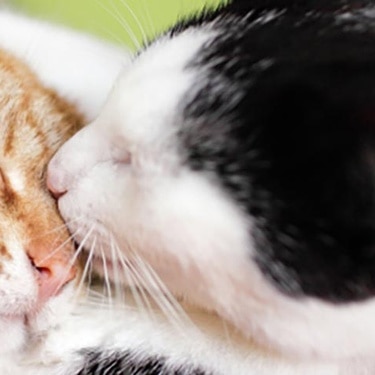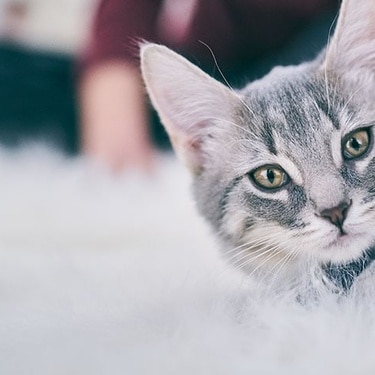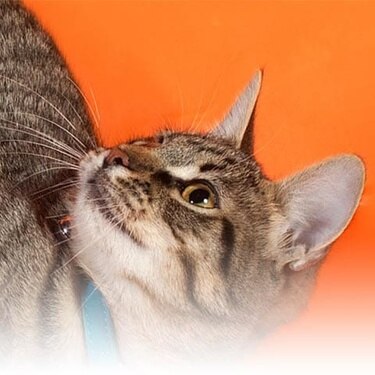
-
Find the right food for your petTake this quiz to see which food may be the best for your furry friend.Find the right food for your petTake this quiz to see which food may be the best for your furry friend.Health CategoryFeatured products
 Puppy Sensitive Stomach & Skin Salmon & Vegetable Stew
Puppy Sensitive Stomach & Skin Salmon & Vegetable StewGentle on stomachs while nourishing skin & supporting development in growing puppies
Shop Now Adult 6+ Large Breed Chicken Meal, Barley & Rice Recipe Dog Food
Adult 6+ Large Breed Chicken Meal, Barley & Rice Recipe Dog FoodSupports energy level, joint health, and beautiful coat in large breed mature dogs
Shop Now Adult Perfect Weight & Joint Support Chicken & Brown Rice Recipe Dog Food
Adult Perfect Weight & Joint Support Chicken & Brown Rice Recipe Dog FoodThis weight management and mobility support dog food was created with Hill’s unique understanding of the biology of overweight dogs.
Shop Now -
DogCat
- Cat Tips & Articles
-
Health Category
- Weight
- Skin & Food Sensitivities
- Urinary
- Digestive
- Kidney
- Dental
- Serious Illness
-
Life Stage
- Kitten Nutrition
- Adult Nutrition
Featured articles Water
WaterWater is the most important nutrient of all and essential for life. Animals can lose almost all their fat and half their protein and still survive, but if they lose 15% of their water, it will mean death.
Read More Pet Food Storage Tips
Pet Food Storage TipsWhere you store your cat and dog food can make a big difference in the quality and freshness once it is opened. Here are some common questions and recommendations for optimal storage for all of Hill’s dry and canned cat and dog food.
Read More The Right Diet For Your Pet
The Right Diet For Your PetLearn what to look for in healthy pet food & nutrition, including ingredients, quality of the manufacturer, your pet's age, and any special needs they have.
Read More -


The slight crinkle of a cheese wrapper can send cats flying into the kitchen in search of the salty treat, but can cats eat cheese? Here's the scoop on whether cats and cheese are a good combination.
Cats and Cheese: Is It OK?
Can cats eat cheese? According to experts, yes — but only in moderation. If you give your cat cheese at all, just give them a small piece once in a while, about the size of a dice. For example, you might opt to limit your kitty's cheese intake to times when you need to hide a pill for them.
But, while many cats can tolerate small portions of cheese, if your kitty is lactose intolerant or has a milk allergy, even a small amount of cheese could wreak havoc on their digestive system.
Dairy Intolerance and Dairy Allergy in Cats
Despite the long-standing myth that cats love nothing better than a bowl of milk or cream, most cats can't digest dairy. The Cornell University College of Veterinary Medicine emphasizes that many cats are lactose intolerant and can experience gastrointestinal problems, including inflammation, diarrhoea, constipation and vomiting, if they consume dairy.
Cats with a dairy allergy may also react poorly to even a small bite of cheese. (Generally, cats don't have a lot of food allergies, but dairy, as well as fish and red meat, are the more common ones.) Like kitties with lactose intolerance, if your cat has a dairy allergy, eating cheese could lead to digestive issues and might even affect their immune system.
Common signs your cat has a dairy allergy include the following after consuming lactose products:
- Vomiting
- Diarrhoea
- Gas
- Itchy and/or red skin patches
- Hair loss
If your cat shows these or any other unusual signs, contact their veterinarian as soon as possible to schedule a check-up.


Tasty Tips
When Cheese Is a No-No
According to the Cummings Veterinary Medical Center at Tufts University, you should avoid giving your cat cheese if they need to lower their salt intake and/or if they have a heart condition. In addition to cheese, if your kitty is on a low-sodium meal plan they should absolutely stay away from deli meat, fast food, potato chips and bread.
Focus on Calories

No more than 8 to 10 percent of a pet's daily calorie allotment should come from treats or food that wasn't recommended by a veterinarian. Cheese, for example, is a popular human food that can be way too high in calories. In fact, giving a 1-ounce cube of cheddar cheese to a 10-pound cat is equal to a person scarfing two and a half cheeseburgers, all at once.
The best approach for cat parents? Avoid the extra snacks and substitute extra love instead.
Types of Cheese: Good vs. The Bad
If you do sneak your cat a cheesy treat, certain varieties may be better than others:
- Cheddar: One of the most popular cheeses around, cheddar is a semi-hard cheese that doesn't contain much lactose. This doesn't mean, however, that your cat should eat large amounts of cheddar, as it can cause tummy troubles.
- Swiss: A favorite among sandwich lovers, Swiss cheese is considered a healthy cheese for humans because it's high in protein and low in sodium and fat. Like cheddar, it has low amounts of lactose, but it can still lead to digestive issues.
- Mozzarella: Plenty of pet parents have caught their feline friends sneaking into the pizza box, but is all that gooey cheese good for your cat? Not so much. Soft cheeses like mozzarella, whether raw or cooked, are health hazards for cats because they are high in lactose. Cottage cheese and cream cheese pose similar risks and should be avoided.
- Brie: A popular soft cheese, brie is made with raw milk, which may contain Salmonella and Listeria, pathogens that cause serious illness. Other raw soft cheeses to avoid are blue cheese and Camembert.
- Blue cheese: Know what makes cheese blue? Mold. This type of cheese, including Stilton, is made with cultures of the mold Penicillium, which can be toxic to pets. For this reason, don't feed your cat moldy cheeses.
Say Cheese
Feeding your cat a bit of cheese here and there shouldn't be a problem, but speak to your cat's vet about whether or not it's a healthy option for your kitty. If you do feed your cat cheese, only give it to them once in a while and in small amounts. That'll give them something to smile about!


Christine O'Brien is a writer, mom, and long-time cat parent whose two Russian Blues rule the house. Her work also appears in Care.com, What to Expect, and Fit Pregnancy, where she writes about pets, pregnancy, and family life. Find and follow her on Instagram and Twitter @brovelliobrien.
Related products

Gourmet daily nutrition, carefully made. Tasty chunks with chicken & beef in a decadent gravy. Supports digestive health, nourishes skin and promotes a lustrous fur.

With delicious chunks in a decadent gravy

With delicious chunks in a decadent gravy

With delicious chunks in a decadent gravy
Related articles

Get helpful information on proper feline oral healthcare and why it's so vital to take care of your cat's teeth.

Being overweight puts a cat at risk for developing many serious health issues. Weight gain indicates an increase in body fat and usually results when your cat eats too much and exercises too little.

HillsPet Nutrition provides information on proper nutrition, fitness and special needs in keeping your cat healthy and happy.

As a responsible pet owner you owe it to yourself and your cat to understand problems associated with overweight cats.

Put your cat on a diet without them knowing
Our low calorie formula helps you control your cat's weight. It's packed with high-quality protein for building lean muscles, and made with purposeful ingredients for a flavorful, nutritious meal. Clinically proven antioxidants, Vitamin C+E, help promote a healthy immune system.
Put your cat on a diet without them knowing
Our low calorie formula helps you control your cat's weight. It's packed with high-quality protein for building lean muscles, and made with purposeful ingredients for a flavorful, nutritious meal. Clinically proven antioxidants, Vitamin C+E, help promote a healthy immune system.

